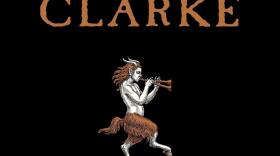Vikki Valentine
Vikki Valentine is a senior supervising editor on NPR's science desk. She oversees the network's global health and development coverage across broadcast and digital platforms. Previously, Valentine was the network's climate change, energy, and environment editor and in this role was a recipient of a 2012 DuPont Award for coverage of natural gas drilling in Pennsylvania.
Valentine led a team that won a 2014 Peabody for its on-the-ground coverage of the largest Ebola outbreak in history: an epidemic in West Africa that spread to nearly 30,000 people. That coverage was also recognized by the Edward R. Murrow awards, a Pictures of the Year International's Award of Excellence, and by the Online News Association.
She was lead editor on the Gracie Award-winning series "#HowToRaiseAHuman" and "#15Girls." The 2018 series "#HowToRaiseAHuman" searched remote parts of the world and human evolutionary history for lost secrets to raising kids. The 2015 series "#15Girls" explored the pervasive and deadly discrimination girls in developing countries face.
Valentine won the 2009 National Academies Communication Award for the year-long multimedia project "Climate Connections." The series was also recognized by the 2008 National Academy of Sciences award, the Metcalf award for environmental journalism, the White House News Photographers Association awards, and the Webbys.
Prior to NPR, Valentine worked as a daily science news editor at Discovery.com and as a features editor and reporter at TheBaltimoreSun. Her writing has also been published by The New York Times, National Geographic, Smithsonian Channel, Marketplace, Science Magazine, andWashingtonianMagazine.
Valentine received a master's from University College London's Wellcome Trust Centre for the History of Medicine. Her bachelor's is from the University of Maryland Baltimore County.
-
Clarke fans waited 16 years for this follow-up to Jonathan Strange & Mr. Norrell.Here, Clarke limns a magic that is part of the very fabric of the universe.
-
The latest installment in the Hercule Poirot franchise — now being written by Sophie Hannah — is a masterful, multilayered puzzle in which Poirot's assistant Inspector Catchpool plays a key role.
-
What happens when one person controls the fate of many? Ghastly experiments like the one Alix Nathan lays out in her new novel, about a country gentleman who aspires to scientific prominence.
-
How far would you go to get away from your overbearing mother? In Jennifer Ryan's novel, a young woman braves the London Blitz to avoid her mom — who hops a train and comes looking for her.
-
All his life, Aniket Sathe has been taught that men rule the world. He lives in India, one of the worst countries for women. Now a new class is changing his attitude.
-
Tuberculosis is an ancient disease, with afflictions recorded as far back as Egypt's pharaohs. Despite effective antibiotic treatments, TB very much remains a pressing global health issue.
-
Affectionate and relatively indestructible – those historically have been key qualities of a good starter pet. Katherine Grier, author of Pets in America, talks about pets of choice over the decades, good and bad.
-
Our first president was never the life of the party. Couldn't stand small talk. And some say he didn't even like to be touched. Yet in 1798 alone, more than 650 guests dined at his home. So what gives? Was Washington a closet bon vivant?
-
An International Astronomical Union panel has recommended that our solar system recognize dwarves and plutons.
-
Soldiers who are burned in Iraq owe a debt to the members of the Guinea Pig Club. That's how badly burned Royal Air Force pilots from World War II referred to themselves. As doctors struggled to care for the men, they made major advances in treatment for burn victims — in the medical arena and in the psychological arena as well.



